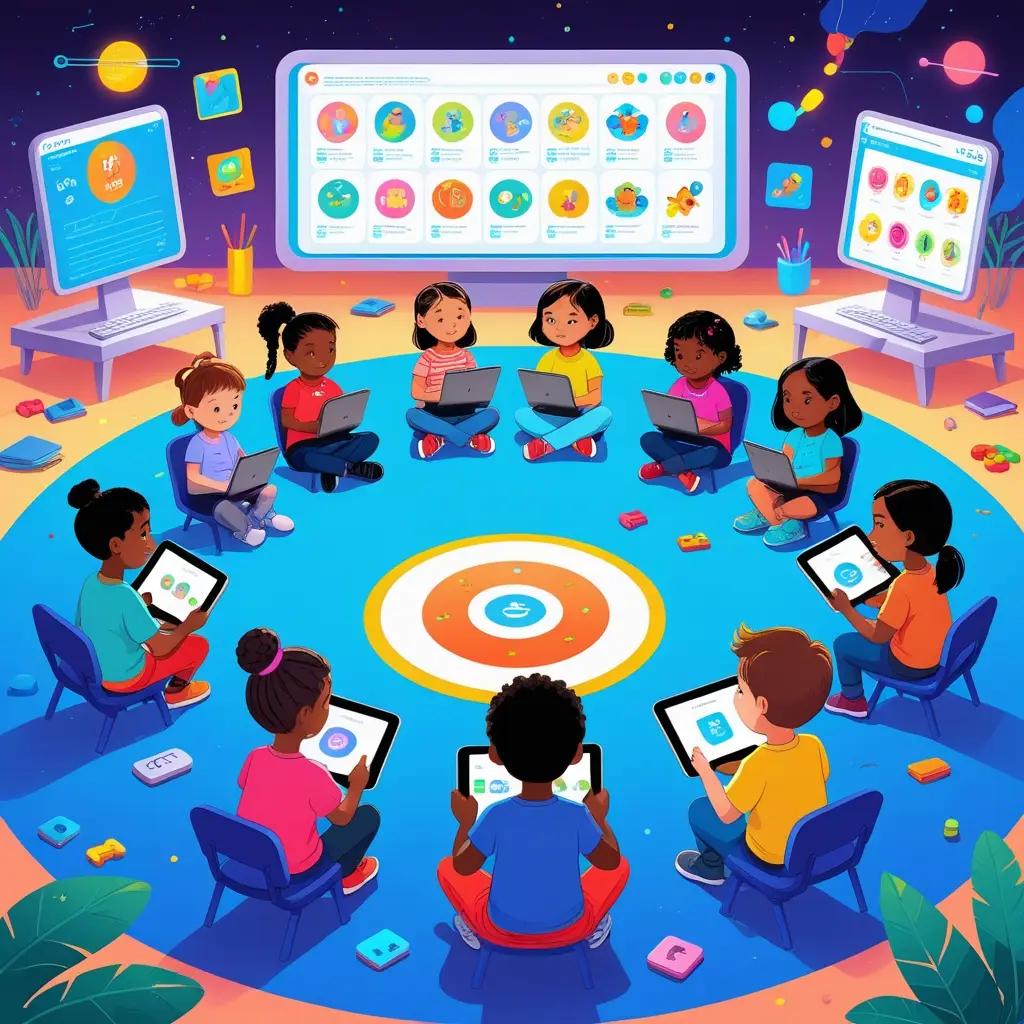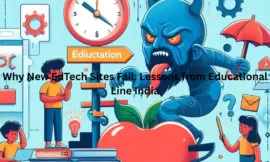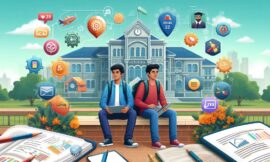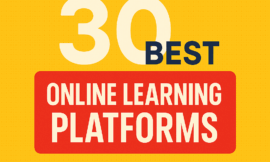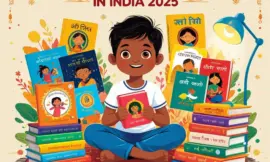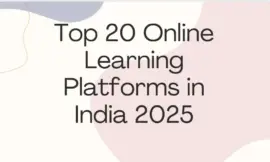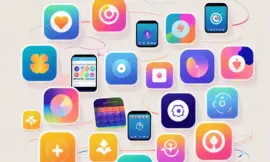In 2025, educational games continue to transform early childhood education by combining fun, technology, and learning. Here “Kids Educational Games 2025 ” you will learn benefits of it.
For preschoolers aged 3 to 5, these games not only entertain but also support crucial developmental skills such as memory, concentration, and creativity.
The role of digital games has grown in importance as educators and parents recognize the benefits of blending play with learning.
Today’s preschool educational landscape is influenced by several emerging trends. The trends are hybrid learning environments, social-emotional learning (SEL), nature-based outdoor education, personalized learning through technology, and mindfulness practices.
These trends encourage the development of digital games that are interactive, engaging, and tailored to children’s needs.
Educational games are designed to complement traditional learning by providing immersive and adaptive experiences. They help children build cognitive abilities like problem-solving and critical thinking, as well as social skills, emotional regulation, and motivation.
An effective educational game creates an environment where young learners can explore various subjects while enjoying the process of discovery.
By integrating voice narration, colorful graphics, and sound effects. These games create a multisensory experience that reinforces learning outcomes and prepares children for future educational challenges.
This article focuses on one of the leading educational apps for preschoolers in 2025—the Kids Preschool Learning Games app.
We will delve into its features, user reviews, and overall impact on child development. Furthermore, we will explore the broader benefits of educational games for early learners.
Kids Educational Games 2025
Review of Kids Preschool Learning Games
The Kids Preschool Learning Games app is designed specifically for children aged 2 to 5. And it offers over 150 fun and interactive games covering a broad range of subjects.
The app addresses foundational topics such as alphabets, numbers, colors, shapes, vehicles, body parts, days and months, musical instruments, animals, fruits and vegetables, community helpers, and environmental science.
In addition to academic subjects, the app includes engaging bedtime stories and nursery rhymes that support language development and provide emotional comfort to young learners.
Features and Functionality Educational Games
Interactive Content
The app uses interactive games that encourage active participation. With a variety of puzzles and memory-enhancing games. It is designed to improve problem-solving skills and critical thinking.
For example, certain puzzle games within the app have been found to significantly boost cognitive development. It aligns with findings that puzzle-based learning has a higher impact on learning outcomes.
Multisensory Experience
With voice narration, colorful graphics, and engaging sound effects. The game creates a rich, multisensory experience that supports learning.
This multisensory approach not only attracts young learners but also helps in retaining information and reinforces memory skills.
User Adaptability
It targets for preschoolers. The game content is well-suited for early developmental stages.
The game is designed to be easily navigable and age appropriate. That means it is essential for building the foundations of learning and preparing children for kindergarten.
Subscription and Accessibility
The app is available for free under the Google Play Pass. It has with options for in-app purchases for premium content. However, a few users have noted occasional issues such as ads appearing despite having a subscription.
Alignment with Educational Games 2025 Trends
Kids Preschool Learning Games is well-positioned within the 2025 educational trends. By combining digital interactivity with traditional learning subjects.
It supports hybrid learning approaches that blend online and offline experiences. The focus on multisensory and engaging scenarios. It reflects the growing emphasis on social-emotional learning and personalized education.
The inclusion of bedtime stories and nursery rhymes also addresses mindfulness practices. It is helping children regulate their emotions and improve self-soothing skills.
Benefits of Educational Games for Preschoolers
Educational games for preschoolers have received considerable attention from researchers. Due to their ability to enhance various developmental outcomes.
Recent systematic reviews and meta-analyses have demonstrated the significant positive impact of game-based learning on early childhood development.
Developmental Outcomes
Recent research has identified several key developmental outcomes influenced by game-based learning. The meta-analysis findings indicate moderate to large improvements in the following areas:
| Developmental Outcome | Effect Size (g) | Description |
|---|---|---|
| Cognitive Development | 0.46 | Enhances problem-solving, memory, and attention |
| Social Development | 0.38 | Improves teamwork, communication, and empathy among peers |
| Emotional Development | 0.35 | Helps children manage emotions and build self-regulation skills |
| Motivation and Engagement | 0.40 – 0.44 | Increases intrinsic motivation and sustained participation in learning |
Impact of Game-Based Learning on Various Developmental Outcomes
These research findings support the idea that interactive, game-based learning approaches. It is not only engaging but also critical in building a well-rounded skill set in young children.
For instance, puzzle games with extended play sessions have been shown to boost cognitive skills and motivation significantly.
Such enhancements are essential for preparing children for more structured academic environments like kindergarten.
Social-Emotional Learning and Behavior
Educational games are uniquely positioned to support social-emotional learning (SEL) by incorporating scenarios that require cooperation and communication.
SEL is an important component of early learning and involves helping children recognize and manage their emotions while building relationships with peers.
Digital games for preschoolers often include interactive narratives that emphasize sharing, taking turns, and empathy, thereby reinforcing positive social behavior.
Personalized and Adaptive Learning
One of the most significant advantages of digital educational games is their ability to adapt to the unique learning pace and style of each child.
Personalized learning through these games ensures that the content is challenging yet achievable. This adaptive approach keeps children engaged and motivated. Children progress at their own pace, making learning both effective and enjoyable.
Engagement and Digital Literacy
Young children today are digital natives. And educational games provide an excellent introduction to digital literacy.
By engaging with interactive interfaces and touch-enabled devices. Preschoolers develop not only academic skills but also familiarity with technology. This is a critical skill in the 21st century.
Studies have shown that the immersive nature of digital educational environments can significantly increase a child’s motivation to learn.
Future Trends and Integration with Educational Policies
Looking toward the future, the integration of educational games in early childhood education is likely to deepen. Educational institutions and policymakers are expected to increasingly adopt game-based learning as an essential component of modern curricula.
Hybrid Learning Environments
The rise of hybrid learning, which combines online and in-person instruction, highlights the importance of digital educational games.
These games serve as an effective bridge between digital and physical learning environments. It allows children to benefit from both high-tech and traditional instructional methods.
Hybrid models not only support academic development but also offer flexibility and personalized learning paths.
Nature-Based and Mindfulness Approaches
Nature-based outdoor education and mindfulness practices are emerging trends in early education that complement digital learning.
Educational games that integrate elements of nature, storytelling, and mindfulness help foster a balanced development.
For example, storytelling segments such as bedtime stories in Kids Preschool Learning Games incorporate calming narratives that support mindfulness and emotional well-being.
This blend of digital and natural elements encourages children to appreciate both the digital and real-world environments.
Emphasis on Social-Emotional Learning (SEL)
There is a growing recognition of the importance of social-emotional learning in early childhood education.
Educational games that incorporate SEL help children build emotional resilience and social skills.
By embedding elements such as empathy, shared tasks, and problem-solving within game narratives, digital games provide practical platforms for SEL.
As policymakers begin to focus more on holistic education, game-based learning tools are expected to play a crucial role in implementing effective SEL strategies.
Visualizing Future Educational Trends
Below is a Mermaid flowchart that depicts how digital educational games integrate with various educational trends in 2025:

Conclusion: – Kids Educational Games 2025
Educational games are set to play a pivotal role in preschool education in 2025. They offer a unique blend of entertainment and learning that nurtures cognitive, social, and emotional development.
The Kids Preschool Learning Games app exemplifies how interactive content, multisensory engagement, and adaptive learning can prepare young learners for future academic challenges.
In summary, as the education system embraces both technological and traditional learning methods. The educational games will continue to enhance early childhood development. And ensure that preschoolers are well-prepared for the challenges of modern education.
